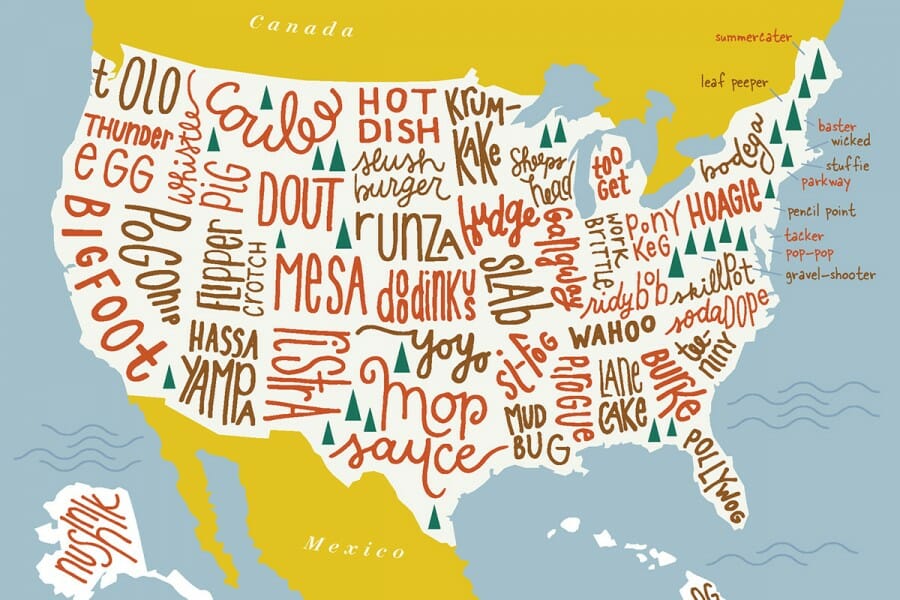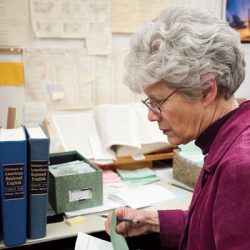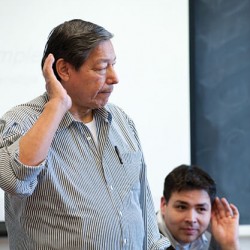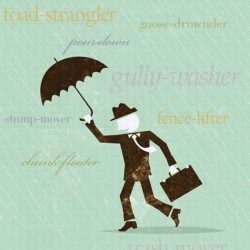Final Words
Listen to Joan Hall’s favorite recording, the old New Mexico cowboy.
Half a century ago, 80 language lovers fanned out across the country to chat with as many people in as many places as possible with a single goal in mind: creating an all-encompassing dictionary of how Americans talk.
After decades of playing back tape recordings, demystifying phrases like “dog my cats” and “eat the greaser,” and chronicling five volumes’ worth of our country’s language from interviews in more than 1,000 communities, staff members at UW–Madison closed the book on the Dictionary of American Regional English (DARE) this past January.
“I would prefer to see it go on,” says Joan Hall, a former editor of the dictionary, who retired in 2015 but stayed on as an active volunteer. “There’s a tremendous amount of work still to be done.”
Lack of funding was what eventually brought the project to an end, as support from two of its largest benefactors, the National Endowment for the Humanities and the National Science Foundation, dwindled in recent years.
In an effort to share their findings more broadly, dictionary staff members completed what would be their final sizable task — putting the recordings online. After enlisting volunteers from the university and the community to censor any identifying information from the tapes, they launched the collection for web listeners in July 2017.
Although it’s unlikely the project could be replicated exactly, Hall remains optimistic about the dictionary’s future.
All of the recordings collected over the years were carefully cataloged before being sent off to the UW Archives. Hall suspects that at some point, the country’s priorities will realign with those of the dictionary, and people will once again value these comprehensive snapshots of our changing language through time.
“I trust that the pendulum will swing,” she says. “But how soon? I don’t know.”
Watch a 2012 Q&A with Joan Hall about completing Volume V of the dictionary.
Published in the Spring 2018 issue




Comments
No comments posted yet.